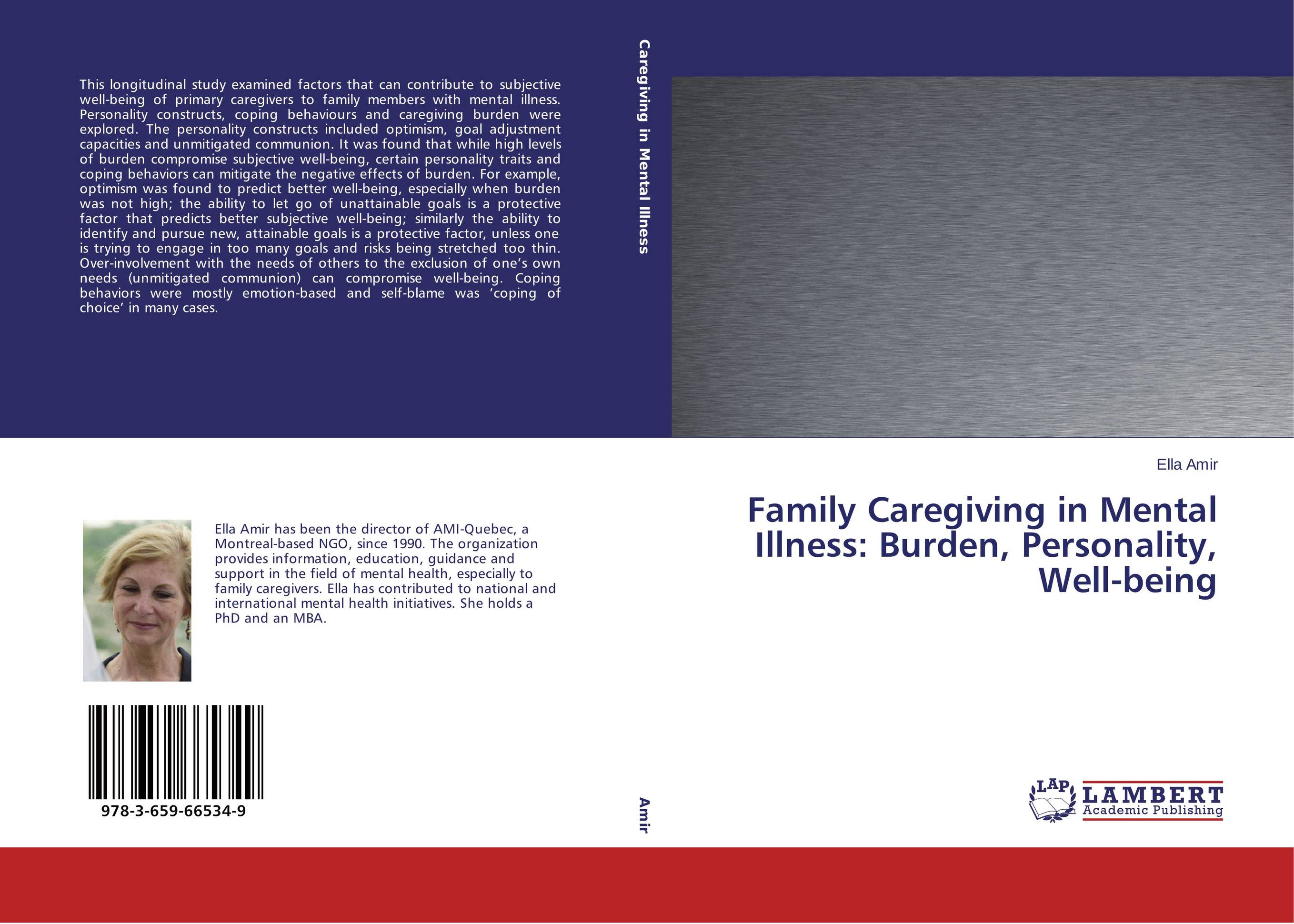| Поиск по каталогу |
|
(строгое соответствие)
|
- Профессиональная
- Научно-популярная
- Художественная
- Публицистика
- Детская
- Искусство
- Хобби, семья, дом
- Спорт
- Путеводители
- Блокноты, тетради, открытки
Family Caregiving in Mental Illness: Burden, Personality, Well-being.

В наличии
| Местонахождение: Алматы | Состояние экземпляра: новый |

Бумажная
версия
версия
Автор: Ella Amir
ISBN: 9783659665349
Год издания: 2014
Формат книги: 60×90/16 (145×215 мм)
Количество страниц: 200
Издательство: LAP LAMBERT Academic Publishing
Цена: 43670 тг
Положить в корзину
| Способы доставки в город Алматы * комплектация (срок до отгрузки) не более 2 рабочих дней |
| Самовывоз из города Алматы (пункты самовывоза партнёра CDEK) |
| Курьерская доставка CDEK из города Москва |
| Доставка Почтой России из города Москва |
Аннотация: This longitudinal study examined factors that can contribute to subjective well-being of primary caregivers to family members with mental illness. Personality constructs, coping behaviours and caregiving burden were explored. The personality constructs included optimism, goal adjustment capacities and unmitigated communion. It was found that while high levels of burden compromise subjective well-being, certain personality traits and coping behaviors can mitigate the negative effects of burden. For example, optimism was found to predict better well-being, especially when burden was not high; the ability to let go of unattainable goals is a protective factor that predicts better subjective well-being; similarly the ability to identify and pursue new, attainable goals is a protective factor, unless one is trying to engage in too many goals and risks being stretched too thin. Over-involvement with the needs of others to the exclusion of one’s own needs (unmitigated communion) can compromise well-being. Coping behaviors were mostly emotion-based and self-blame was ‘coping of choice’ in many cases.
Ключевые слова: burden, caregivers, family, Mental Illness



